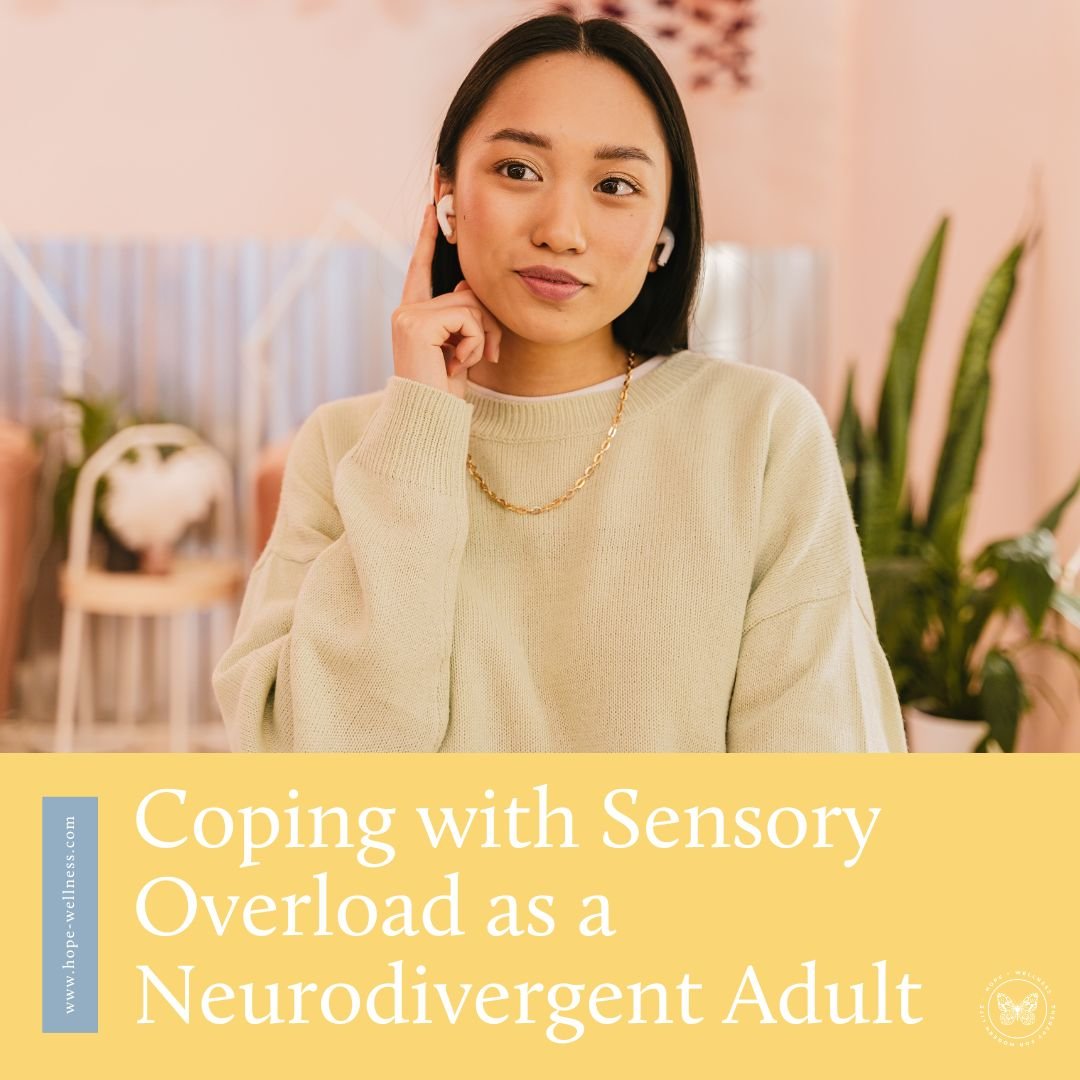
Hope +Wellness Blog
little snippets of advice for everyday challenges many people share

3 Ways to Cope With Health Anxiety
Health anxiety is distressing while you're waiting for a diagnosis or other results. Here's how you can cope.

Coping with Sensory Overload as a Neurodivergent Adult
Sensory overload is especially common for people who are neurodivergent. Here are some tips for how to cope.

6 Practical Ways to Cope with Post-Election Anxiety
Your feelings post-election are valid, including anxiety for what’s to come. These are a few ways to cope with post-election anxiety.

Coping Strategies for Managing Grief and Loss
Learning how to ride the waves of grief is like learning how to manage any other intense emotion. It takes time and effort, and often the help of a professional to support you through it.

The Psychology of Fresh Starts: Embracing Change in the New Year
With the start of a new year just a few days away, it’s a good time to think about your relationship with change.

Managing Racing Thoughts That Keep You Awake
Have you ever been trying to fall asleep, but your thoughts just wouldn’t stop? One minute you were sleepily dragging yourself under the covers, and the next your heart was pounding and your thoughts were racing and your breaths were coming in short and quick? Racing thoughts aren’t uncommon–we all deal with them from time to time

5 Strategies for Overcoming Social Anxiety at Holiday Gatherings
How can you make sure social anxiety doesn’t get in the way of enjoying events you attend during the holiday season? Here are 5 strategies for overcoming social anxiety at holiday gatherings.

Masking: What It Is and How It Shows Up
“Masking” is a term that refers to the process of suppressing your natural behaviors in order to blend in with those around you. It’s a self preservation technique for neurodivergent people, where they work to mimic the behaviors of neurotypical people around them in order to both fit in and avoid punishment for not blending in.

6 Ways to Deal With Intrusive Thoughts
Intrusive thoughts often cause extreme distress and worry, and they can be difficult to deal with in the moment. So, how can you cope with intrusive thoughts? Here are 6 strategies to try the next time you have an upsetting intrusive thought.

What to Do When You’re Burned Out
Burnout leaves you feeling exhausted, depleted, and hopeless, which can make it harder to get started doing anything that will help you feel better. Coping with burnout doesn’t have to be complicated, though, and there are some simple steps you can take to start feeling better.
Hope+Wellness is a mental health practice specializing in the treatment of depression, mood, stress, and anxiety in kids, teens, and adults. This is a blog about living well and finding meaning and purpose in the face of difficult challenges. This is a blog about finding hope.
Archive
- ACT
- ADHD
- Acceptance
- Anxiety
- Authenticity
- Belonging
- Bipolar
- CBT
- Calming
- Change
- Chronic Illness
- Chronic Pain
- Communication
- Community
- Coping Skills
- DBT
- Dating
- Depression
- EMDR
- Emotions
- Entrepreneurs
- Friendship
- Gratitude
- Grief
- Health Psychology
- Hope
- Inspiration
- Intimacy
- Intuition
- Joy
- Letting Go
- Love
- Manic Depression
- Mindfulness
- Miscarriage
- OCD
- Parenting
- Personal Growth
- Positive Vibes
- Quotes
- Relationships
- Resources
- Self-Compassion
- Self-Reflection
- Services
- Sleep
- Spirituality
- Stress Management
- Stress Relief
- Suffering